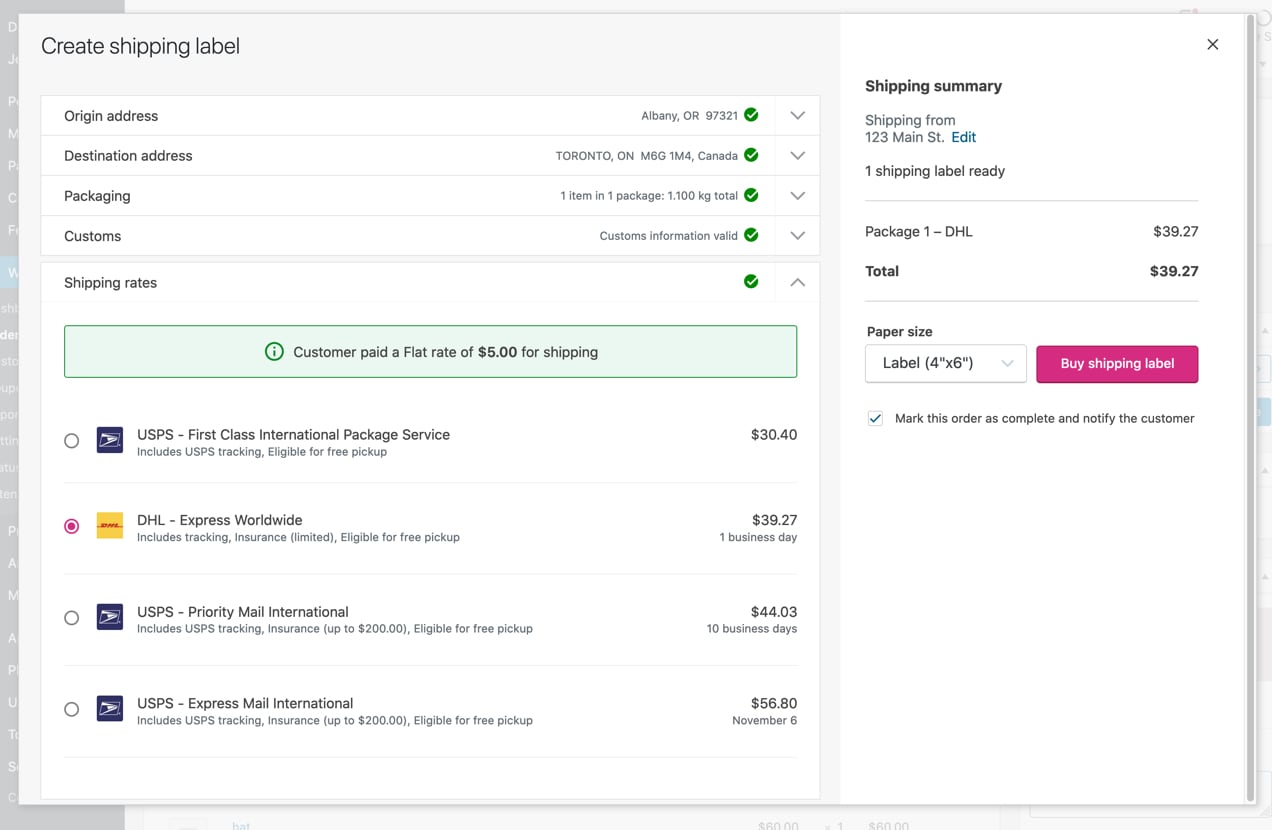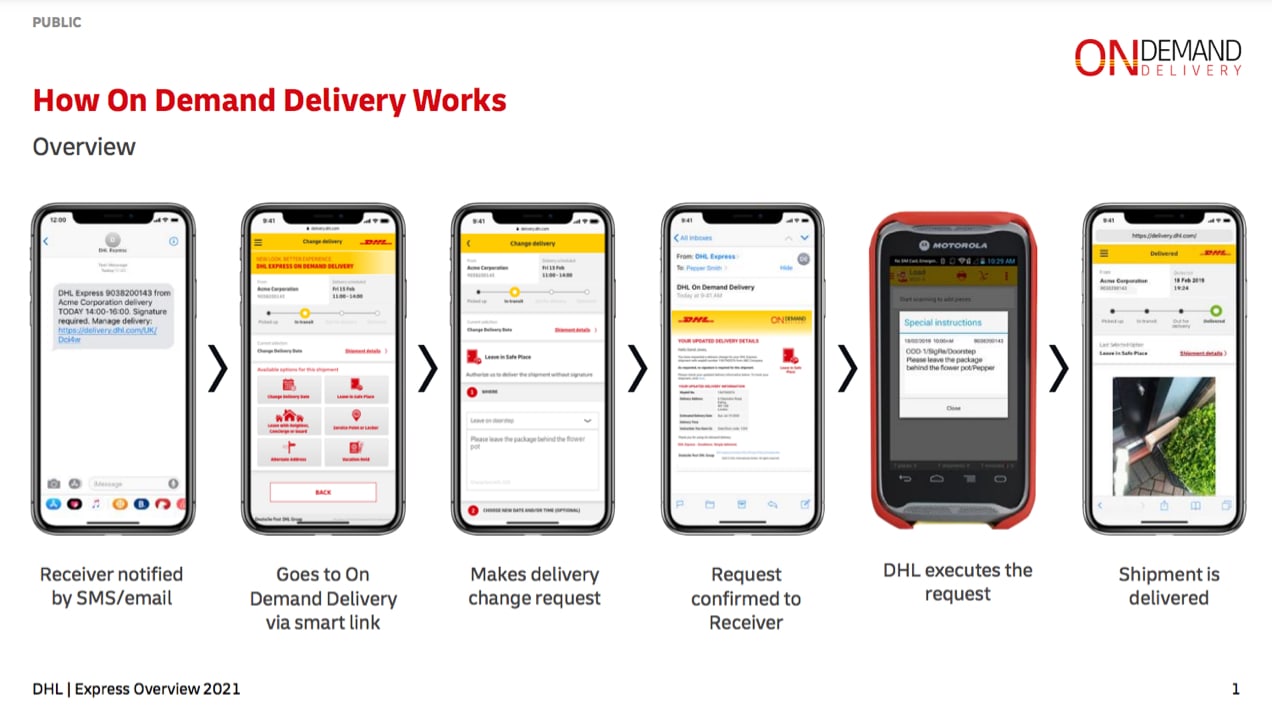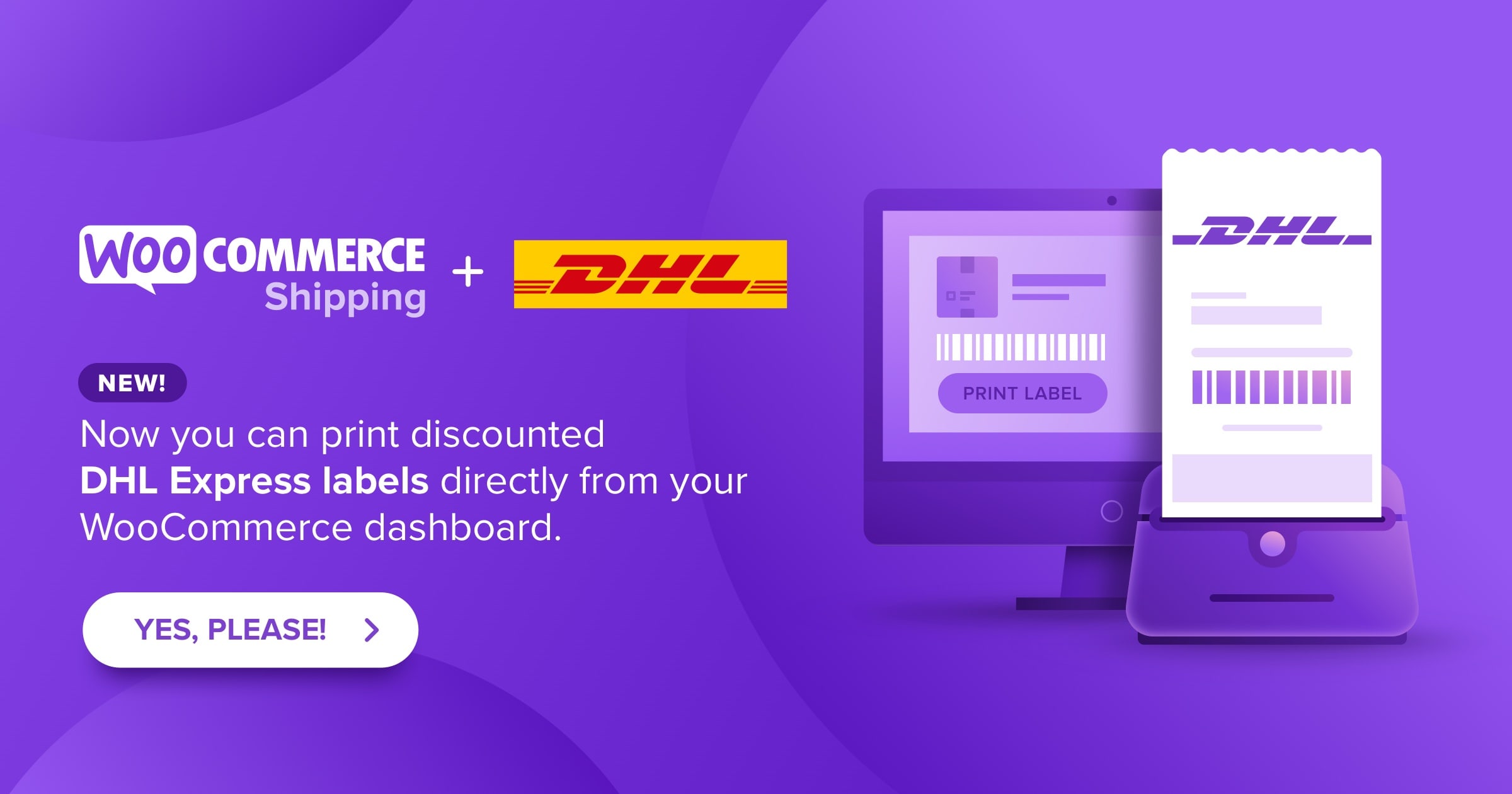Just as the pandemic has transformed our attitudes about everything from attending live concerts to visiting friends and dining at restaurants, it’s also changed the way people shop. And nowhere has the shift to ecommerce been more dramatic than overseas. In less than a year, many developing countries leapfrogged into ecommerce. And these changes are here to stay.
This international transformation in consumer behavior has opened up vast new markets for US-based online shops. For those with WooCommerce stores, going global has never been easier, thanks to a new partnership between WooCommerce Shipping and DHL, the world’s leading logistics company.
Going global is easier than you think
“More than 95 percent of the world’s population is outside the United States,” said Rachel McGarry, Head of Platforms for DHL. “The question is how do you make sense of that and use it to your advantage. There are so many growth opportunities outside of our borders.”
While McGarry said that going global may seem “intangible” for many small- to medium-sized direct to consumer (D2C) online businesses, the integration with WooCommerce and DHL “simplifies the whole process and makes it doable.”
“If you, as a store owner, can identify the opportunity and create the product, we can take it from there,” McGarry said. “We’ve done the heavy lifting for you. The WooCommerce/DHL integration has virtually eliminated the stress of processing overseas orders.”
The DHL WooCommerce dream team
With WooCommerce Shipping, store owners can purchase discounted DHL Express labels right in their dashboards with no setup charges and no monthly fees.

Perks also include:
- Free DHL pickups.
- Quick deliveries (as fast as two to five days).
- End-to-end shipment tracking with automated customer emails.
- Automated Customs form creation.
- Online duty collection.
- Alternative delivery locations (like service lockers in the EU).
Unprecedented opportunities for growth
In many countries, ecommerce has long faced barriers like underdeveloped internet infrastructure and consumers hesitant to use banks and forms of electronic payment, but the pandemic’s disruption has forced rapid change.
In Mexico, the inability to shop in person drove a 54 percent jump in web sales. In Brazil, online sales increased 66 percent in 2020 (more than twice that of the US). The pandemic ushered an estimated 10 million Russians online for the first time. And India presents the largest growth opportunity with the online market forecasted to almost triple by 2024, according to an article in Bloomberg.
“2020 accelerated the adoption of digital commerce. More people are buying online than ever before, which has opened the door to massive global opportunity. And while it can seem overwhelming to go global, it doesn’t have to be,” McGarry said. “DHL offers customers premium express shipping to 220+ countries and territories, with full visibility and flexible delivery options. This enables businesses of any size to offer the kind of fast, efficient service that consumers have come to expect.”
Should you expand internationally?
Sticking to a domestic customer base means missing out, as cross-border trade is predicted to rise faster than national growth. Research supports that companies offering multiple delivery options at checkout drive higher revenue and the average order value for cross-border transactions is 17 percent higher than the domestic equivalent.
It’s a mistake not to explore this opportunity. If you’re not sure where to begin, DHL offers a straightforward list of tips for international success along with a simple test to assess whether it makes sense for your business.
“Merchants can gauge their direct opportunities by doing things like reviewing website traffic by geography and calculating demand in certain markets,” McGarry said. “You can begin by looking at countries with lower barriers to entry such as those which are primarily English-speaking.”
The DHL advantage
While you may be more familiar with the trucks of other delivery services in the US, don’t let that fool you. DHL is the world’s largest logistics provider. Unlike the other guys, DHL’s niche is international and their global footprint is massive.
“The way I sometimes describe it to people is that DHL is like soccer,” McGarry said. “In the US, not everyone realizes it’s the leading sport in the world, but it is. And you might not realize that DHL is the global leader in international logistics, but we are.”
One thing COVID also revealed is the importance of on-time, transparent deliveries. Research shows that consumers attribute the delivery experience to the merchant, not the carrier. So with all the shipping delays that plagued many carriers during the pandemic, brands searched for a more reliable solution with door-to-door visibility.
“Having premium service from checkout to doorstep impacts how a brand is perceived in the short- and long-term,” McGarry said. “Studies show a clear connection between delivery experience and the lifetime value of a customer.”
Because DHL’s services are in localized languages across the globe and its technology allows users to track and control their package through the On Demand Delivery service, buyers get the security, flexibility, and transparency that creates a positive experience.

Ready to go global?
If you already have WooCommerce Shipping, all you need to do is add an international shipping zone. Then, you’ll automatically see DHL as an option when choosing a service.
If you don’t have WooCommerce Shipping, you can download it for free and follow the steps in our documentation to get started. Want even more tips? Check out the DHL blog.
